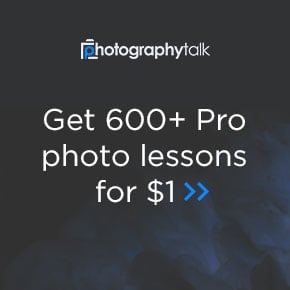P-Mode
-
 Topic Author
Topic Author
- Stephen Graham
- The Lounger
- Followers: 150
- Posts: 1430
-
Points:
21144
Post #548633
-
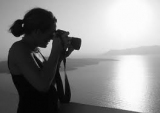
- Paris Gal
- Photography Hooked
-
- 5D mark III & EOS R
- Followers: 148
- Posts: 542
-
Points:
4538
Post #548652
I personally don't use this mode much, I'm pretty much shooting in Aperture priority or Manual mode.
5D mark II gripped | Canon 100L | Canon 85 1.8 | Sigma 50 1.4 | Tamron 28-75 2.8 | 580ex II | 430ex II x 2 |
-
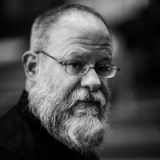
- garyrhook
- Oh Wise One
-
- Nikon D850, Nikon D750, Panasonic G7K
- Followers: 912
- Posts: 11103
-
Points:
67681
Post #548685
Stephen Graham wrote: Is it okay to use P-Mode? Would it hamper my improvement in skills if I keep using it?
No.
Yes.
That's automatic mode, where the camera makes all the decisions. How can you progress unless you take control and take risks?
-

- Bryston3bsst
- Newbie
- Followers: 13
-
Points:
2181
Post #548688
Of course it's ok. It's your camera and your pictures. You can shoot however you like.
Will it hamper your improvement?
No, it won't hamper it. It will end it.
It's very tempting to use the auto modes as you don't have to do anything. Point and shoot. Your pictures will come out perfectly each time. Perfectly average. Just like everyone else's.
However.......if you want pictures that make people look at them for more than 5 or 10 seconds.......if you want pictures that others want hanging on their walls......if you want your pictures to be published........the auto modes will not get you there.
The whole idea is for you to see your picture before you even lift the camera to your eye. You already know what you want, the next step is to be able to tell your camera what you want it to do. As long as the camera is making decisions, the picture that you saw will never make it to the card.
The only thing that will make you a better photographer is experimentation, practice and looking at lots of failed pictures that you shot. But the really cool part about looking at all of those failures is that with each one you just learned something. I realize it can be frustrating and there will be times when you're truly ready to give up. But the successes will come. More and more frequently.
-
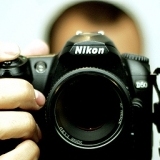
- KENT MELTON
- The Lounger
-
- Nikon D610 and Sony a7
- Followers: 209
- Posts: 1036
-
Points:
12955
Post #548689
-

- effron
- Newbie
- Followers: 1623
-
Points:
129640
-
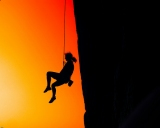
- MYoung
- Master of the Lens
-
- Sony a7s II, Nikon D750
- Followers: 486
- Posts: 1627
-
Points:
12120
-
 Topic Author
Topic Author
- Stephen Graham
- The Lounger
- Followers: 150
- Posts: 1430
-
Points:
21144
Post #548757
Paris Gal wrote: Ask Ken Rockwell, P mode = Professional mode
I personally don't use this mode much, I'm pretty much shooting in Aperture priority or Manual mode.
Right! Thanks for this. In contrast, I keep using this a lot.
-
 Topic Author
Topic Author
- Stephen Graham
- The Lounger
- Followers: 150
- Posts: 1430
-
Points:
21144
Post #548758
garyrhook wrote:
Stephen Graham wrote: Is it okay to use P-Mode? Would it hamper my improvement in skills if I keep using it?
No.
Yes.
That's automatic mode, where the camera makes all the decisions. How can you progress unless you take control and take risks?
I understand. I guess it's time to change. Do you have any suggestion where to start?
-
 Topic Author
Topic Author
- Stephen Graham
- The Lounger
- Followers: 150
- Posts: 1430
-
Points:
21144
Post #548759
Bryston3bsst wrote: Is it ok?
Of course it's ok. It's your camera and your pictures. You can shoot however you like.
Will it hamper your improvement?
No, it won't hamper it. It will end it.
It's very tempting to use the auto modes as you don't have to do anything. Point and shoot. Your pictures will come out perfectly each time. Perfectly average. Just like everyone else's.
However.......if you want pictures that make people look at them for more than 5 or 10 seconds.......if you want pictures that others want hanging on their walls......if you want your pictures to be published........the auto modes will not get you there.
The whole idea is for you to see your picture before you even lift the camera to your eye. You already know what you want, the next step is to be able to tell your camera what you want it to do. As long as the camera is making decisions, the picture that you saw will never make it to the card.
The only thing that will make you a better photographer is experimentation, practice and looking at lots of failed pictures that you shot. But the really cool part about looking at all of those failures is that with each one you just learned something. I realize it can be frustrating and there will be times when you're truly ready to give up. But the successes will come. More and more frequently.
This is so insightful! Thanks for Brys!
-
 Topic Author
Topic Author
- Stephen Graham
- The Lounger
- Followers: 150
- Posts: 1430
-
Points:
21144
Post #548760
KENT MELTON wrote: Agree, you want to have as much control over your camera as you can. So heck no to P mode, stick with Manual if you want to grow as a photographer.
That's my next move. Thanks!
-
 Topic Author
Topic Author
- Stephen Graham
- The Lounger
- Followers: 150
- Posts: 1430
-
Points:
21144
Post #548761
effron wrote: You can use any mode you want, its your camera. I'm amused by those that sing about "auto" mode, always shoot in manual and still use AF. Use anything to get a good shot, no?
Indeed, I guess there are always two sides in every coin...
-
 Topic Author
Topic Author
- Stephen Graham
- The Lounger
- Followers: 150
- Posts: 1430
-
Points:
21144
Post #548762
MYoung wrote: I love how Fro Photo rags on Ken Rockwell and his opinion of P used by professionals only.
I have not fully studied it yet. But I will read about it today.
-

- garyrhook
- Oh Wise One
-
- Nikon D850, Nikon D750, Panasonic G7K
- Followers: 912
- Posts: 11103
-
Points:
67681
Post #548840
Stephen Graham wrote:
garyrhook wrote:
Stephen Graham wrote: Is it okay to use P-Mode? Would it hamper my improvement in skills if I keep using it?
No.
Yes.
That's automatic mode, where the camera makes all the decisions. How can you progress unless you take control and take risks?
I understand. I guess it's time to change. Do you have any suggestion where to start?
Sure. Go through your photos and be merciless. Find the ones you like the very best.
Then study the settings the camera chose for exposure. Learn from that. Then try to recreate the results using one of the other modes (start with aperture priority, IMO). Learn how different apertures affect the image. ISO and shutter speed are, I think, secondary, but you'll need to learn about them, too, and how different values are useful in different situations.
Then get out there and experiment. It's digital, and you already own the camera.
-

- Bryston3bsst
- Newbie
- Followers: 13
-
Points:
2181
Post #548851
Stephen Graham wrote:
I understand. I guess it's time to change. Do you have any suggestion where to start?
The most important thing to understand is the exposure triangle, ISO, aperture and shutter speed. Know how each effects your final image and, most importantly, how each effects the other. Any time you change one of these three elements the other two are effected. And......in most cases, because you have changed one of these, you probably will have to make changes in either or both of the others, depending on where you want your picture to go.
This is where experimentation comes in. Using the light meter in your camera, set up a shot of whatever you choose to the best of your ability and look at your results. Now, change one of the three and shoot again and look at what has changed. You will begin to understand how all of these three bear on your pictures and how you can then begin to use these changes to shape any picture to match what you originally envisioned in your head when you made the decision to take any given picture.
Latest Reviews
The Olympus Pen E-P7 is an affordable micro four thirds mirrorless camera with 4K video capabilities, a 20.3MP sensor, and 121 focus points, making it a solid entry-level camera for beginners.
The Panasonic G9 II is a 25.2-megapixel micro four thirds camera with numerous features that make it punch out of its weight class, like 779 AF points, 5.8K video, and weather sealing.
The Fujifilm XT5 is a 40MP mirrorless camera capable of 6.2K video at 30p. With those specs, it’s an ideal choice for photographers needing a camera to pull double duty for imaging and video.
The Canon EOS R100 is an entry-level mirrorless camera introduced in 2023. But just because it’s an entry-level camera doesn’t mean it’s a bare-bones camera. Find out why in this review!
Forum Top Posters
-
1Scotty 7 posts
-
2Roman Omell 4 posts
-
3Razky 4 posts
-
4Ruby Grace 3 posts
-
5Pat White 3 posts
-
6Nefarious 3 posts
-
7ShutterPal 3 posts
-
8Roger Lang 3 posts
-
9Jim Photo 3 posts
-
10CharleyL 3 posts
Latest Articles
In this guide to the bokeh effect, you’ll learn what bokeh is and the factors involved in creating it. You’ll also explore some beautiful example images to spark your creativity with bokeh!
Upgrade your kit in 2024 with the best intermediate camera on the market! The question is, what camera fits the bill? We’ve got three top options for you to choose from in this buyer’s guide.
The best photography jobs right now are a mix of tried-and-true gigs like wedding photography and new jobs highlighting AI’s capabilities, travel, and videography.
The Olympus Pen E-P7 is an affordable micro four thirds mirrorless camera with 4K video capabilities, a 20.3MP sensor, and 121 focus points, making it a solid entry-level camera for beginners.
Starting a photography business is one thing; sustaining your business over a long period of time is another. Use the tips in this professional photography guide to build something with longevity!
The Panasonic G9 II is a 25.2-megapixel micro four thirds camera with numerous features that make it punch out of its weight class, like 779 AF points, 5.8K video, and weather sealing.
Cinematic photography is an interesting genre that combines photographic and videographic skills along with effective storytelling techniques. The result? Highly impactful images!
Newborn photography requires skill, the right gear, and a lot of patience. This beginner’s guide discusses critical topics that will help you be more prepared for before, during, and after the shoot.










